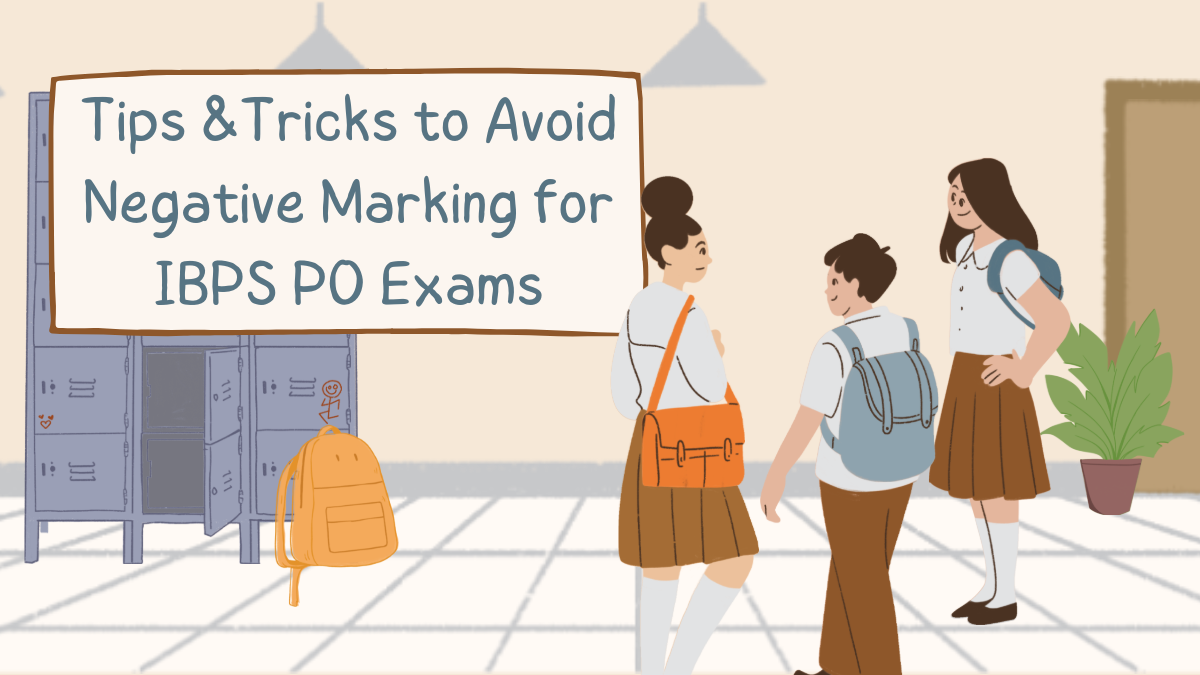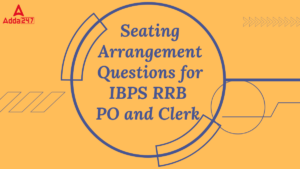Table of Contents
In this article, we will explore strategies to reduce the impact of negative marking in bank examinations. Negative marking has become a prevalent practice in most competitive bank exams these days. One of the primary concerns for aspirants is understanding whether negative marking exists and how to mitigate its effects.
Negative marking refers to the deduction of marks from a candidate’s total score for each incorrect answer. Typically, 0.25 marks are subtracted for every wrong response. Consequently, for every four incorrect answers, the candidate loses one mark. This system is implemented to discourage guesswork and ensure that candidates approach the questions with careful consideration.
Tips & Tricks to Avoid Negative Marking in IBPS PO Exam
Below we have provided some tips and tricks to minimize negative marking in bank exams, especially IBPS PO exams:
Leave All Those Questions That You Are Unsure Of
Candidates should prioritize and attempt the questions they are fully confident about first, before moving on to the ones they are unsure of. This approach is facilitated by the option to review and revisit questions during the examination.
Skipping questions that candidates are uncertain about can be an effective strategy to minimize the impact of negative marking. It is crucial to strike a balance and attempt a reasonable number of questions to maximize the chances of securing a higher score. The goal should be to optimize the trade-off between attempting more questions and minimizing the risk of negative marking due to incorrect responses.
Avoid Guessing Answers
In situations where candidates are uncertain about the answer or have doubts regarding a particular question, they should leave it Unattempted rather than resorting to blind guesswork. The prudent approach is to focus on addressing only those questions for which they possess complete confidence and certainty. Attempting questions based on mere guesses can prove counterproductive, as it may result in negative markings, leading to a reduction in the overall score. Therefore, candidates should exercise discretion and refrain from answering questions unless they are sure of the correct response, as this strategy can help mitigate the detrimental impact of negative marking on their performance.
Read Questions Carefully
Occasionally, candidates encounter seemingly straightforward questions and hastily mark their responses without thoroughly reading the question and available options. However, this rushed approach can prove detrimental, as candidates might inadvertently select the wrong answer due to their hurried manner. This oversight can lead to negative markings, ultimately impacting their overall score.
Therefore, candidates must exercise patience and diligence, carefully reading through each question and scrutinizing the provided options before finalizing their responses. Adopting a calm and deliberate approach to comprehend the questions thoroughly can help candidates avoid such careless mistakes and minimize the risk of negative marking, thereby maximizing their chances of achieving a higher score in the examination.
Answer Easy Questions First
Candidates should thoroughly read the entire question to identify the sections where they excel. Initially tackling the simpler questions can boost their confidence to continue with the bank exam paper. This approach also helps in determining which questions to skip.
Practice Mock Test and Previous Year Questions
Engaging in test series, such as mock exams, simulated tests, and solving previous years’ bank examination question papers, can provide candidates with valuable insights into the examination pattern. This practice allows them to familiarize themselves with the format, question types, and overall structure of the bank exams.
Additionally, it enables candidates to identify areas where they tend to make mistakes, thereby facilitating focused efforts to rectify those shortcomings. By analyzing their performance in these practice sessions, candidates can pinpoint specific weaknesses and work towards addressing them. This proactive approach ensures that they do not repeat the same errors during the actual examination, ultimately improving their chances of achieving a higher score and enhancing their overall preparedness for the bank exams.
Take Calculated Risk
Candidates should resist the temptation to answer every question. They should focus only on those they are confident about. If their answer isn’t among the options, they can take a calculated risk by choosing the one they believe is closest to the correct answer.
Without taking such calculated risks, candidates might not answer enough questions to meet the sectional cutoff for the bank exam. Option elimination trick also helps in taking calculated risk.
Avoid Answering in the Last Minute
Candidates must use their time wisely during bank exams. They should first attempt questions they are confident about, skip those they are unsure of, and revisit them later if time permits. Guessing blindly can lead to negative marking, so it’s better to leave a question unanswered than to guess incorrectly. Reading questions and options carefully, rather than rushing through them, can prevent careless mistakes. Practicing with mock tests and previous years’ papers helps identify and rectify mistake patterns. Proper time management allows for thorough revision, avoiding last-minute rushed attempts that increase the risk of errors.
Well-prepared candidates for the bank examination need not worry about negative marking. They should focus on their goal, work diligently, and follow the aforementioned steps to minimize negative marks in the bank exam.




 GA Capsule for SBI Clerk Mains 2025, Dow...
GA Capsule for SBI Clerk Mains 2025, Dow...
 The Hindu Review October 2022: Download ...
The Hindu Review October 2022: Download ...
 Seating Arrangement Questions for IBPS R...
Seating Arrangement Questions for IBPS R...


